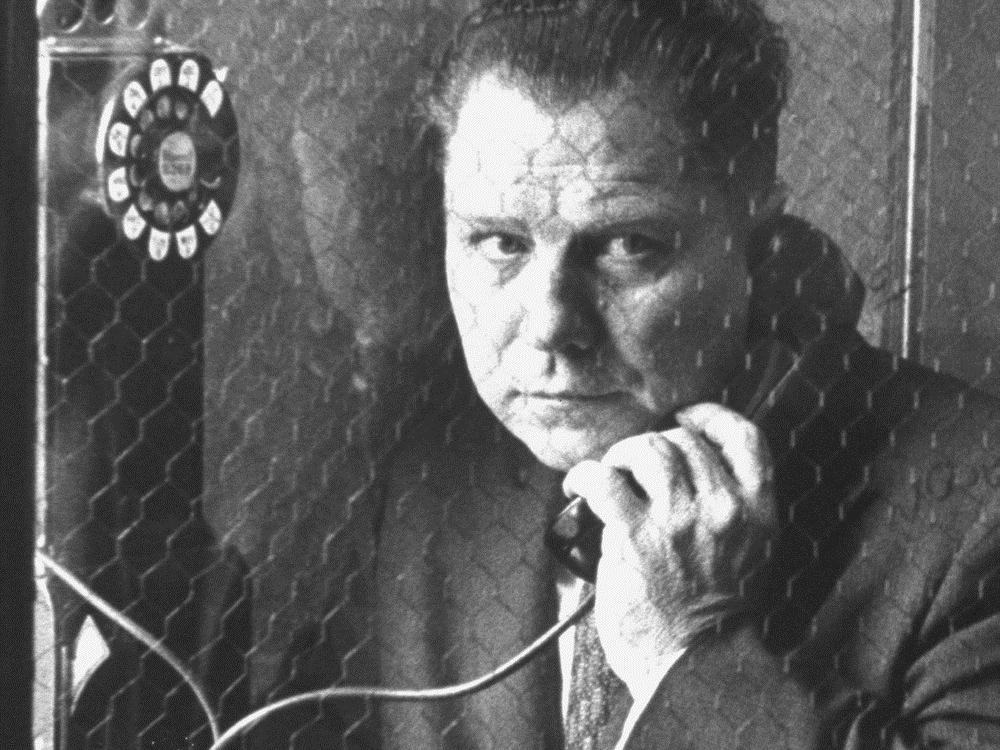In Hoffa’s Shadow
Today is the publication date for my new book : “In Hoffa's Shadow: A Stepfather, a Disappearance in Detroit, and My Search for the Truth.” Here is a description from the book’s web page:

Published by The Lawfare Institute
in Cooperation With

Today is the publication date for my new book : “In Hoffa's Shadow: A Stepfather, a Disappearance in Detroit, and My Search for the Truth.” Here is a description from the book’s web page:
In June 1975, when I was twelve, my mother married Charles “Chuckie” O’Brien, Jimmy Hoffa’s longtime aide who became the leading suspect when Hoffa famously disappeared six weeks later, on July 30, 1975. During my teens I revered Chuckie, who was a great father despite the Hoffa maelstrom. When I set out on my professional path in law school, however, I renounced Chuckie out of apprehension about his impact on my life and my career. We had barely spoken for two decades by the time of my service as the head of the Office of Legal Counsel in the Justice Department. It was during my time at DOJ that I began the process that would lead me to reconsider Chuckie, and then to seek his forgiveness, and then to begin a seven-year effort to prove his innocence. This book is the fruit of that work. It shows that the 44-year-old conventional wisdom about Chuckie’s involvement in the Hoffa disappearance is wrong. It also tells what I learned along the way—about the Hoffa disappearance, the mob, surveillance abuse, the fall of labor, and paternal and filial treachery and love.
Not typical Lawfare fare, you might think. And yet it is. One large slice of the story is about the government’s aggressive norm-breaking and law-breaking efforts to decapitate the corrupt Hoffa and his mobster friends in the 1950s and 1960s, and the long-tale consequences of such overreach, which we are still living with, or reliving, in contemporary times. (There is an improbable connection between surveillance tactics against Hoffa and Stellarwind.) Another slice of the story is about the government’s not-always-honorable investigation of Hoffa’s disappearance, especially in its treatment of my stepfather over the years.
Hoffa’s disappearance is an important thread in the book, if that interests you. I read thousands of pages of government documents about the case, many of which the public has never seen; and I interviewed nearly a dozen FBI agents who worked the case over the years, from 1975-present, many of whom speak on the record. I believe the book exonerates my stepfather. (Here is a story on ABC news in Detroit that talks about that angle.) The reader can judge. But I am confident that, despite my personal connection to the case, the book cuts through decades of obfuscation and sets forth the most objective, fair-minded, and revealing assessment of Hoffa’s disappearance to date—one that sheds authentic light on the case and the era in which it happened. I also explain the government’s current theory about the disappearance.
The book covers other topics—the history of La Cosa Nostra and labor racketeering, Hoffa’s unorthodox ties to the mob, his labor organizing genius, the tragedy of Hoffa’s downfall for the modern labor movement, Richard Nixon’s shocking machinations in his courtship of the Teamsters union and commutation of Hoffa’s prison sentence, lots of new details in the run up to Hoffa’s disappearance and the event itself, and my stepfather’s tragi-comic efforts, over four decades, to clear his name. All of this takes place against the backdrop of Chuckie’s complex and changing relationship with Hoffa, who was like a father to him, and my complex and changing relationship to Chuckie, who was an extraordinary father to me when I was a young man.
Hugh Hewitt in his generous review talks about “Chuckie’s very good and very compromised parts.” One theme in the book, I have come to see, is that many of the lead players in my drama—Hoffa, Bobby Kennedy, other Justice Department and FBI officials, Chuckie, many of his organized crime friends, and I—were in various ways both good and compromised. It is the human condition, and I try to capture it candidly, in all its complexity.
Martin Scorsese has a movie that premieres this week, “The Irishman,” that is about Hoffa’s disappearance. I will have as essay at the New York Review of Books site later this week about that. And next month The Atlantic will run a long excerpt from the book.
The book is available from various outlets: Amazon, Barnes and Noble, Powell’s, IndieBound and Books-A-Million. All of the book’s reviews, and announcements about book events, can be found here. There will be lots of discussion about the Hoffa case in the coming weeks and months. I will be blogging about that here.




